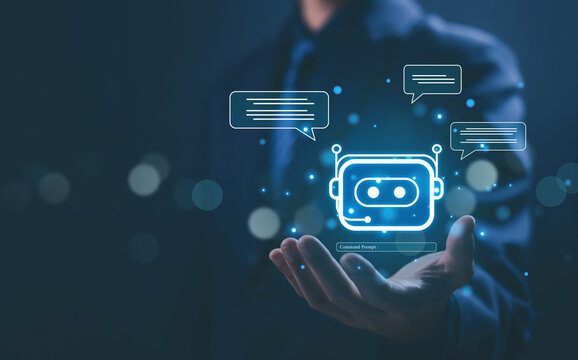AI Chatbots for Business: A Clear and Practical Guide
Artificial Intelligence (AI) chatbots are computer programs designed to simulate human conversation. They are often used by businesses to handle customer interactions, streamline workflows, and enhance user experience. These bots use natural language processing (NLP) and machine learning algorithms to understand queries, provide relevant answers, and even take action when integrated with backend systems.
From small startups to large corporations, AI chatbots are reshaping how businesses interact with customers, solve problems, and scale operations—all while reducing operational costs.

Why AI Chatbots Matter Today
The need for instant communication, 24/7 support, and personalized customer experience has made AI chatbots a crucial tool for modern businesses. Here’s why they matter:
-
Customer Service Efficiency: Chatbots can handle thousands of customer queries simultaneously, reducing wait times and human resource burden.
-
Sales and Lead Generation: Many companies use bots to qualify leads, suggest products, or guide users down the sales funnel.
-
Operational Cost Savings: By automating repetitive tasks like FAQs, bookings, or tracking requests, companies save time and labor costs.
-
User Experience Enhancement: Bots provide personalized, fast, and consistent responses—important for customer satisfaction and loyalty.
-
Language Support: Multilingual bots help businesses serve a wider audience without hiring local representatives for each region.
Industries like e-commerce, banking, healthcare, and education have seen significant improvements in engagement and efficiency due to chatbot implementation.
Recent Trends and Developments (2024–2025)
AI chatbots continue to evolve rapidly. Here are some notable trends from the past year:
-
Generative AI Integration: Tools like ChatGPT are being integrated into customer support and sales chatbots for more natural and helpful conversations.
-
Voice-Enabled Chatbots: Businesses are increasingly deploying voice bots in apps and IVR systems to offer hands-free support.
-
Hyper-Personalization: Using customer history and behavior, bots are becoming more predictive and tailored to individual needs.
-
Industry-Specific Chatbots: Customized bots for industries such as legal, finance, and medical are gaining traction with built-in compliance features.
-
No-Code Bot Builders: Platforms like Tidio, ManyChat, and Landbot allow non-programmers to create sophisticated chatbots easily.
The demand for smart, adaptive, and emotionally intelligent bots is driving both innovation and competition in the AI chatbot landscape.
Regulatory and Policy Considerations
While most countries welcome the use of AI in business, there are some legal and ethical frameworks to consider:
-
Data Privacy Laws: Regulations such as the GDPR (Europe), CCPA (California), and PDPA (Thailand/Singapore) require bots to handle customer data responsibly.
-
Disclosure Requirements: In some regions, bots must disclose that users are not speaking with a human to avoid deceptive interactions.
-
Bias and Fairness: There is increasing scrutiny on ensuring chatbots don’t reinforce harmful biases or discriminate unintentionally.
-
Security Standards: Businesses must ensure that AI bots are protected from cyber threats and do not expose user data.
When developing or adopting a chatbot, businesses should align their practices with local and international digital ethics and data governance frameworks.
Tools and Resources for Businesses
Whether you're a small business or an enterprise, several tools and platforms can help you implement AI chatbots effectively:
Popular AI Chatbot Platforms
| Platform | Features | Best For |
|---|---|---|
| Dialogflow | NLP, voice integration, Google support | Complex workflows |
| ChatGPT API | Human-like dialogue, easy integration | Personalized responses |
| Tidio | Live chat + AI bot with CRM integration | E-commerce, SMEs |
| Drift | AI for sales teams, lead generation | B2B businesses |
| Landbot | Drag-and-drop builder, no coding | Startups, surveys |
| Intercom | Smart routing, CRM & sales tool integration | Mid to large firms |
Other Resources
-
Botpress – Open-source bot development.
-
Rasa – Advanced NLP framework for custom bots.
-
Zapier – Connect chatbots to hundreds of other apps.
-
Online Courses – Platforms like Coursera and Udemy offer chatbot development and AI ethics training.
Choosing the right tool depends on your use case, technical skills, and budget.
Frequently Asked Questions (FAQs)
Q1: Are AI chatbots expensive to implement?
Not necessarily. There are free and low-cost options like Tidio or ManyChat for small businesses. Enterprise solutions cost more due to customization and volume.
Q2: Can AI chatbots replace human support agents?
They can reduce the need for human agents in handling repetitive or simple tasks, but human agents are still vital for complex, emotional, or sensitive queries.
Q3: What are the risks of using AI chatbots in business?
Risks include giving incorrect information, misinterpreting user intent, or violating privacy laws. Regular monitoring and human oversight are essential.
Q4: How can a business train its chatbot?
Training involves feeding the bot with sample conversations, FAQs, product info, and updating it regularly based on customer feedback and analytics.
Q5: What’s the difference between a chatbot and a virtual assistant?
Chatbots handle specific tasks or conversations (e.g., booking or FAQs). Virtual assistants like Siri or Alexa are broader and often voice-based, with multitasking abilities.
Final Thoughts
AI chatbots are more than just a trend—they're transforming the way businesses communicate, operate, and grow. With the right strategy, tools, and compliance practices, companies of all sizes can benefit from this technology. Whether used for customer service, sales, or internal operations, chatbots offer a scalable and smart way to improve efficiency and engagement.
Staying informed and updated about chatbot technology helps businesses make smarter decisions, avoid pitfalls, and build better relationships with their customers.